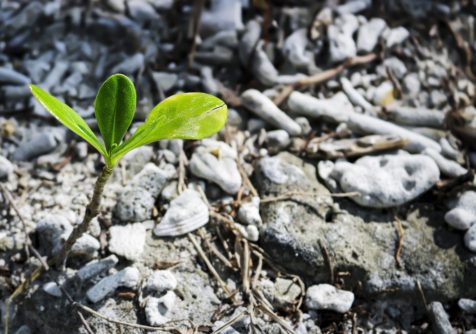
Interreg VL-NL RESANAT approval
10/05/2019
In the Interreg project RESANAT, bio2clean will focus on microorganism stimulated phytoremediation. Follow the details soon on bio2clean.be
RESANAT (remediation of residual pollution with nature-based techniques) stimulates the redevelopment of contaminated sites in the Netherlands and Flanders, which is now hampered by the (cost) intensive approach to soil pollution with relatively persistent substances. Conventional remediation and management techniques are expensive, energy-intensive (e.g. excavation or permanent groundwater treatment) and often require long-term, costly management measures for residual contamination. This has a negative effect on the development potential, increases environmental pressure (high water and carbon footprint) and affects the quality of the environment.
At present there are no environmentally friendly and economically viable solutions for these locations on the market for landowners, contractors and consultants. A large proportion of them belong to SMEs: 40% for remediation contractors and up to 80% for soil experts. Conventional remediation techniques are often difficult to market due to the unfavourable cost-benefit balance. Innovation is hampered in both countries by the risks associated with experiments, which are difficult for remediation contractors and soil experts to bear.
However, knowledge institutes and larger consultancies are innovating in nature-based solutions (NbS), in which plants, micro-organisms, wind etc. energy are used to control residual pollution. In this way, polluted soils can be redeveloped at an earlier stage after conventional remediation of the top layer in combination with less intensive nature-based control of residual pollution. NbS limit the risk to human health and the environment, have lower maintenance costs and are sustainable in terms of energy use. However, these techniques have not yet been sufficiently demonstrated, especially in combination with persistent substances such as PAH, to be used reliably, efficiently and full-scale.
At present, many areas remain unused awaiting remediation (e.g. Flemish brownfields) or are subject to long-term management measures with restrictions on use (such as the 2000 NL IBC sites), particularly in urban areas on land which, in terms of location, is very suitable for residential or business development. This aggravates both in NL and VL, where efficient land use is of great importance due to high population density, the pressure on the available open space, a.o. visible in the proclaimed Flemish 'concrete stop'.
In addition, the 7th EU environmental action programme states that by 2020 the remediation of the +500,000 contaminated sites in the EU must be in full progress. Before the introduction of the Environment Act in 2021, the Netherlands wants to tackle all urgent remediation sites, while Flanders wants to have remediation started in 2036 at all sites with historical soil contamination. The government, too, is therefore in need of expanding available techniques with more effective and economically viable NbS, focusing on urban land use in VL and NL.
The aim of RESANAT is to increase the practical applicability of nature-based remediation, management and monitoring techniques and to develop codes of good practice on these techniques. In this way, the efficient use of natural resources (including land) will be achieved and the deterioration of environmental quality will be limited.
